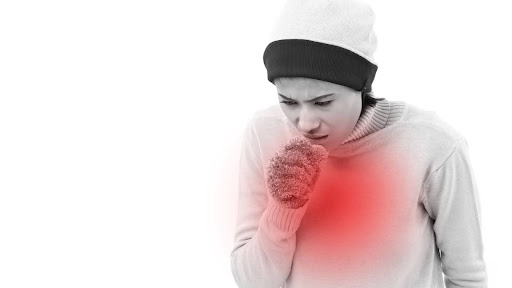Coughing All the Time? Learn Causes, Remedies Today
3 min read
By DocGenie , Published on - 28 March 2021
Coughing is a reflex action that helps clear your airways of mucus, foreign particles, and irritants. It can be a sign of a respiratory illness, such as a cold or flu, or a more serious condition like asthma or chronic obstructive pulmonary disease (COPD). However, not all coughs are created equal. Some people may cough all the time, while others may only cough during or after activity. In this blog post, we’ll explore the differences between these two types of coughs and what they could mean for your health.
Coughing all the time, If you find yourself coughing frequently throughout the day, it could be a sign of an underlying health problem.
Some of the most common causes of chronic cough include:
1. Asthma: Asthma is a chronic respiratory condition that causes inflammation and narrowing of the airways, leading to coughing, wheezing, and shortness of breath.
2. Allergies: Allergies can cause your airways to become inflamed, leading to coughing, sneezing, and a runny nose.
3. GERD: Gastroesophageal reflux disease (GERD) is a digestive disorder that causes stomach acid to flow back into the esophagus, leading to heartburn and coughing.
4. Smoking: Smoking can irritate the lungs and airways, leading to chronic cough and other respiratory problems.
5. Respiratory infections: Chronic cough can be a lingering symptom of respiratory infections like pneumonia, bronchitis, or tuberculosis.
If you’re experiencing a chronic cough, it’s important to see your doctor to determine the underlying cause and develop an appropriate treatment plan.
Coughing during or after activity
If you only experience coughing during or after physical activity, it could be a sign of exercise-induced bronchoconstriction (EIB), also known as exercise-induced asthma. EIB occurs when the airways narrow during or after exercise, leading to coughing, wheezing, and shortness of breath. Other symptoms may include chest tightness, fatigue, and reduced athletic performance.
EIB is more common in people with asthma or allergies, but it can also occur in people without any preexisting respiratory conditions. If you suspect that you have EIB, it’s important to see your doctor for an accurate diagnosis and treatment plan. Your provider may recommend using a bronchodilator inhaler before exercise or adjusting your exercise routine to reduce your symptoms.
In conclusion, coughing can be a sign of a range of respiratory and other health problems. If you find yourself coughing frequently or experiencing coughing during or after physical activity, it’s important to see your healthcare provider for an accurate diagnosis and appropriate treatment plan. Don’t ignore chronic coughing as it could be an indication of a more serious underlying health issue.
In case you have cough and you are worried about the severity of the infection, consult a highly experienced general physician on DocGenie. All our GPs are available for online video sessions. With DocGenie you can get quality medical help from the comfort of your home, in a cost effective way.
DocGenie is an online telemedicine platform that provides you with quality healthcare from the comfort of your own space. On DocGenie, you can book an online consultation with highly qualified doctors as well as book lab tests for home collection.
Post navigation
Gait and Balance Problems: Causes and Treatment
Whats the best treatment for a cold?
Author Details

Dr.Rachna Kucheria
MD (Community Medicine) AIIMS New Delhi
MD (Family Medicine) USC California
Obesity Medicine Certification The American Board of Obesity Medicine
30+ Years of experience


